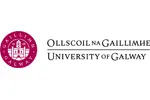We're moving! This site will be relocating to goingto.university in 2026. Please update your bookmarks to the new address.


Ireland
University of Galway| The award | How you will study | Study duration | Course start | Domestic course fees | International course fees |
|---|---|---|---|---|---|
| PDip | Part-time | 2 years | September | - | - |
Taking the strengths from our previous ICT Skills Springboard+ conversion programme, the Higher Diploma in Software Design and Development 'Industry Stream', the School of Computer Science in University of Galway has developed a brand new replacement programme, the L9 Postgraduate Diploma in Cloud Computing and Software Development. This new programme has been carefully designed in conjunction with our 12 industry partners and in consultation with regional skills fora. The programme a fully online part-time course, designed to meet the challenges of reskilling and upskilling students in a modern economy where many applicants are working full-time and require flexible delivery options.
It is designed in tandem with industry to meet the growing skills shortage for software developers with a knowledge of Cloud infrastructures. It is a conversion course which means that it is open to applicants from non-computing backgrounds. They facilitate individuals wishing to change career, reskill or potentially upskill to improve their employment prospects. The minimum requirement is that students have a L8 undergraduate degree, L7 entrants can also apply but will need to demonstrate at least two years industry experience within the computing sector to be considered. In addition, both courses offer an 8 month internship in industry in semester two of year two, which effectively means that participants will be working full-time in industry after 18 months. The courses are fully online and part-time, meaning that applicants can maintain their existing full-time or part-time employment whilst taking the course. Student fees for the course are 90% funded by the Higher Education Authority meaning that successful applicants will only have to cover 10% of the fee which amounts to €772 in total.
This sector is experiencing rapid expansion at the moment, and there is a growing skills shortage for ICT graduate roles that these students are ideally suited to fill. The highly intensive programme is designed for those with little or no knowledge of software development, but we are particularly keen to receive applications from those who have had some exposure to coding and feel that this is something they potentially have a flare for. People with technical or strong numerical backgrounds often perform best in these types of programmes and we strongly encourage applicants who have strong logical reasoning or maths skills. This could be a strong maths result from their leaving cert or from certain modules in their undergraduate degree. This isn't essential, but often indicates a strong problem solving and logical skillset.
--
You may also be interested in one of our other School of Computer Science postgraduate programmes.
Please apply through the Springboard website. Significant demand is expected and early application is advisable as we will process applications on a rolling basis.
Assessment
Individual modules will include a mixture of continuous assessments usually in the form of lab-based assignments, as well as end of semester exams.
Contact University of Galway to find course entry requirements.
Below are some suggested courses at other providers that you may also be interested in:
Management of Innovation and Sustainable Business Development MSc
NTNU School of International Business
Find out moreResearch in Special Needs Education Master Degree
Faculty of Educational Sciences, University of Oslo
Find out moreIf you do not meet the entry requirements for this course then consider one of these postgraduate preparation courses from another institution:
Graduate Diploma of Engineering (Civil: Structural)
Engineering Institute of Technology
Find out moreGraduate Diploma of Psychological Science
Australian College of Applied Psychology (ACAP)
Find out moreThere are 164 other courses listed from University of Galway. A selection of these are displayed below:
Bachelor and Master of Engineering (Electrical and Electronic) Bachelor
University of Galway
Find out moreBachelor and Master of Engineering (Electronic and Computer) Bachelor
University of Galway
Find out moreJoin the StudyLink email list and never miss a chance to turn your study abroad dreams into reality!
